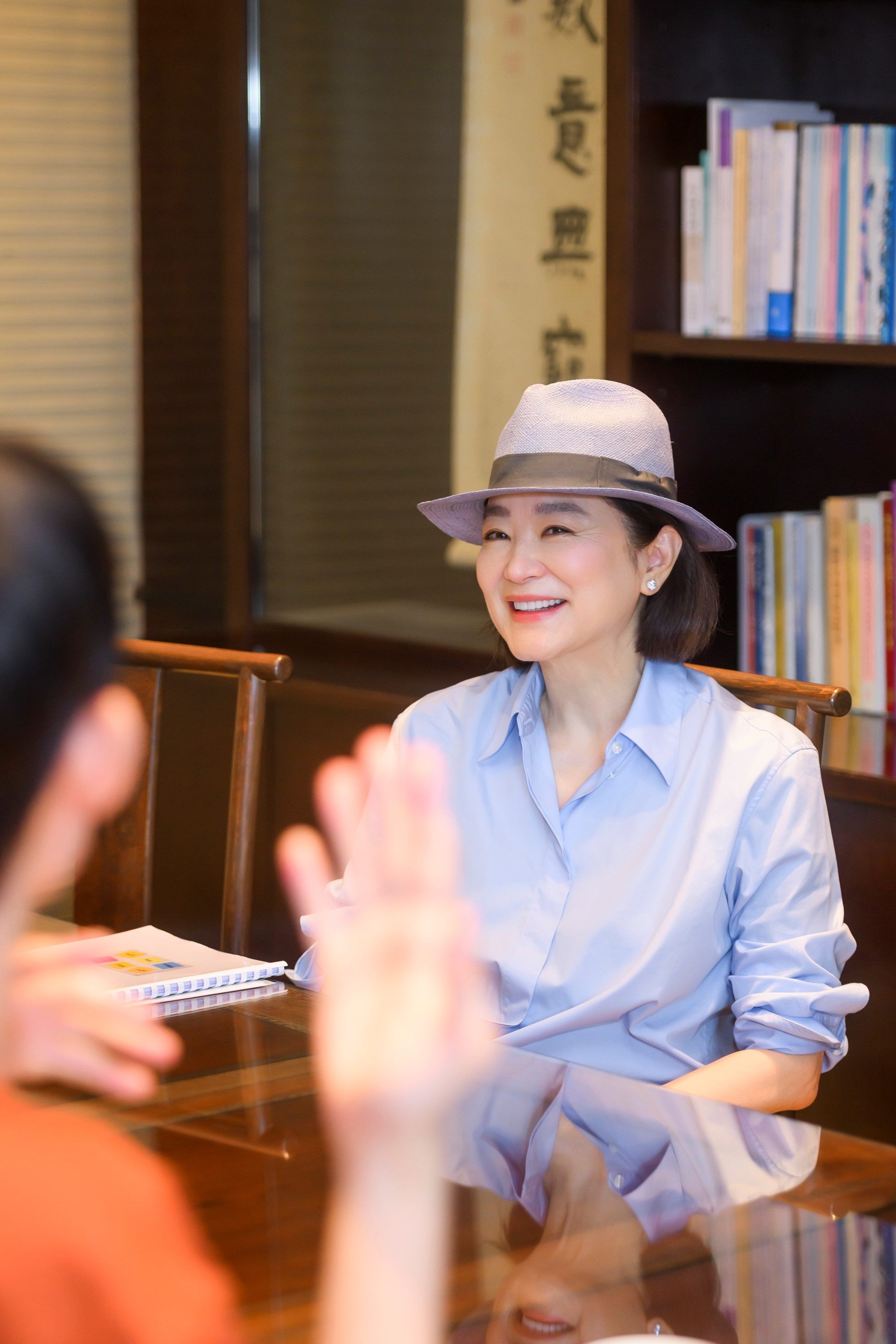
Hong Kong film star Brigitte Lin takes on new role as ambassador for dementia project
- Lin, now 68, shares her secrets for retaining a sharp mind as dementia prevention project announced
- Chinese University and Charles K Kao Foundation for Alzheimer’s Disease join forces to help fight the symptoms of the degenerative condition
Lin, a screen goddess of the Chinese-language film industry, shared her secrets on how to age with a sharp mind as she took on a new starring role as ambassador for a dementia prevention project.
“[The project] can let many elderly people … know in advance, help them detect, and educate them how to prevent the condition,” Lin explained.

Lin revealed table tennis was a brain game she has relied on for the past three years.
She said she played it at home for at least half an hour every day and had enjoyed incredible benefits to her memory.
Lin added photography, writing and drawing also helped keep her brain active and that she had become fascinated by the work of French artist Henri Matisse, one of the most influential artists of the 20th century.
“My memory has become better, I have been curious about many new things, I have acquired a lot of knowledge and common sense, and I love learning,” Lin, also an honorary fellow of SH Ho College of the Chinese University of Hong Kong, said.
“I feel that I have had a second start of my life since I turned 60 years old.”
Chinese University and the foundation, a non-profit organisation founded by the late physicist Charles Kao Kuen – dubbed the “father of fibre optics”- and his wife Gwen Kao Wong May-wan, said they would offer free dementia screenings as part of the project.
The move was a response to the city’s increasing rates of dementia as the city’s population ages.
People aged 60 to 80 and concerned about their mental abilities can complete an online cognitive screening questionnaire from September 21.
Those found to be eligible will be offered face-to-face clinical assessments by a trained nurse.
The Charles Kao CUHK BEAT AD Service will be free for the public for 18 months and is expected to benefit a total of 800 people.
Dementia affects memory, thought processes and the ability to perform everyday tasks.
The condition generally affects people aged over 65 and the risk of developing it increases with age. There is no cure.
The prevalence rate of dementia in Hong Kong is estimated to be 5 to 8 per cent among those over 65, and 20 to 30 per cent among those over 80.
Lin, originally from Taiwan, said that her mother-in-law’s memory had deteriorated after she developed dementia more than 20 years ago.
The actress said her mother-in-law kept asking the same questions, felt frightened and suffered from bad moods.
Fibre optics research by Kao, who was diagnosed with Alzheimer’s in the early 2000s, laid the groundwork for the development of modern communications.
Kao’s work was recognised when he was announced as co-winner of the Nobel Prize for physics in 2009 and was knighted by Queen Elizabeth in 2010.
But the scientist, who died aged 84 in 2018, was by then unable to appreciate the magnitude of the honours as his Alzheimer’s had advanced.

